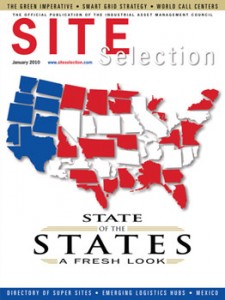Archive for November, 2015
Thanksgiving as a business practice
 A young man from Korea recently taught a training class at our Georgia facility. At dinner that evening we asked him about the Thanksgiving holiday, and what he knew about it. He knew almost nothing about that, but then said, “tell me about this black Friday.” He even went so far as to say, that he’d like to delay his return so he could participate.
A young man from Korea recently taught a training class at our Georgia facility. At dinner that evening we asked him about the Thanksgiving holiday, and what he knew about it. He knew almost nothing about that, but then said, “tell me about this black Friday.” He even went so far as to say, that he’d like to delay his return so he could participate.
That’s amusing, and as a businessman, I am certainly not opposed to sales and shopping days. On the other hand, it is a bit sad, that one of the most American of all holidays, has become known worldwide as the harbinger of “black Friday.”
In 1620, 102 Pilgrims came to this continent to escape religious persecution. By the fall of 1621, 56 of them had died due to disease and privation.
The 46 remaining Pilgrims, along with 91 Indians, met together to give thanks to God for a bountiful harvest and for preserving their lives.
You can imagine the tendency to be depressed. Their introduction to what we now know as a prosperous nation had been mostly backbreaking work and heartbreaking loss. But, as we all know, that’s not what they did. Instead, they joined together, and gave thanks, giving birth to a truly American holiday, Thanksgiving.
In the old Testament, the prophet Habakkuk wrote this poem..
Though the fig tree should not blossom
And there be no fruit on the vines,
Though the yield of the olive should fail
And the fields produce no food,
Though the flock should be cut off from the fold
And there be no cattle in the stalls,
Yet I will exult in the Lord,
I will rejoice in the God of my salvation.
A thankful heart, is a treasure.
I’ve actually never met a person worth much of anything that wasn’t thankful. I honestly think the opposite of thankful is not thankless, but rather arrogance.
For many years the prevailing thought was that successful business people were self centered egotists. Jim Collins shattered that myth with his ground breaking book “Good to Great.” Collins discovered through meticulous research that the most common trait among the people that led Good to Great companies was humility.
Collins wrote a followup book, “How the Mighty Fall” where he stated that the first step to failure, was “hubris born of success.” In other words, arrogance.
Others have noted this. Author Malcomb Gladwell says that overly confident people (arrogant) are incapable of learning from the world around them. Hence, they are often blinded to the realities that everyone else could see.
We talk often on Driven to Business about the need to stay constantly aware of your market, your company, your finances, and your health. We’re most vulnerable when we have experienced success, because if we aren’t careful, we allow pride in our accomplishments and successes to isolate and blind us.
This isn’t to denigrate drive, confidence, and leadership. To the contrary, Collins specifically says that his humble leaders were highly motivated, confident and driven people. They just couched it in an overall attitude of humility. They didn’t assume they knew everything, or that others had nothing to teach them. They were ever investigating and learning their business and market.
Learning is requisite to wisdom. The apostle Paul wrote: “Therefore let anyone who thinks that he stands take heed lest he fall.” The book of Proverbs says “pride goes before a fall.” That’s not just church talk, it’s real life (and business).
The antithesis to arrogance, is thankfulness. Because, being thankful, grows from humility. It’s an attitude, a way of life. And, it’s a trait that others can see clearly.
Who would you rather have a relationship with: a self serving arrogant know it all, or a humble person that values you, and is thankful for your business?
Your customers, colleagues, and employees want the same.
Happy Thanksgiving.
Eddie Mayfield
Driven to Business, hosted by Eddie Mayfield, is heard at 11 AM every Saturday on Atlanta’s business radio, Biz 1190 AM. The show is streamed live on biz1190.com and podcast on eddiemayfield.com and itunes.
Simply the best business radio in Atlanta.. Driven to Business.
Being thankful is good business
 A young man from Korea recently taught a training class at our Georgia facility. At dinner that evening we asked him about the Thanksgiving holiday, and what he knew about it. He knew almost nothing about that, but then said, “tell me about this black Friday.” He even went so far as to say, that he’d like to delay his return so he could participate.
A young man from Korea recently taught a training class at our Georgia facility. At dinner that evening we asked him about the Thanksgiving holiday, and what he knew about it. He knew almost nothing about that, but then said, “tell me about this black Friday.” He even went so far as to say, that he’d like to delay his return so he could participate.
That’s amusing, and as a businessman, I am certainly not opposed to sales and shopping days. On the other hand, it is a bit sad, that one of the most American of all holidays, has become known worldwide as the harbinger of “black Friday.”
In 1620, 102 Pilgrims came to this continent to escape religious persecution. By the fall of 1621, 56 of them had died due to disease and privation.
The 46 remaining Pilgrims, along with 91 Indians, met together to give thanks to God for a bountiful harvest and for preserving their lives.
You can imagine the tendency to be depressed. Their introduction to what we now know as a prosperous nation had been mostly backbreaking work and heartbreaking loss. But, as we all know, that’s not what they did. Instead, they joined together, and gave thanks, giving birth to a truly American holiday, Thanksgiving.
In the old Testament, the prophet Habakkuk wrote this poem..
Though the fig tree should not blossom
And there be no fruit on the vines,
Though the yield of the olive should fail
And the fields produce no food,
Though the flock should be cut off from the fold
And there be no cattle in the stalls,
Yet I will exult in the Lord,
I will rejoice in the God of my salvation.
A thankful heart, is a treasure.
I’ve actually never met a person worth much of anything that wasn’t thankful. I honestly think the opposite of thankful is not thankless, but rather arrogance.
For many years the prevailing thought was that successful business people were self centered egotists. Jim Collins shattered that myth with his ground breaking book “Good to Great.” Collins discovered through meticulous research that the most common trait among the people that led Good to Great companies was humility.
Collins wrote a followup book, “How the Mighty Fall” where he stated that the first step to failure, was “hubris born of success.” In other words, arrogance.
Others have noted this. Author Malcomb Gladwell says that overly confident people (arrogant) are incapable of learning from the world around them. Hence, they are often blinded to the realities that everyone else could see.
We talk often on Driven to Business about the need to stay constantly aware of your market, your company, your finances, and your health. We’re most vulnerable when we have experienced success, because if we aren’t careful, we allow pride in our accomplishments and successes to isolate and blind us.
This isn’t to denigrate drive, confidence, and leadership. To the contrary, Collins specifically says that his humble leaders were highly motivated, confident and driven people. They just couched it in an overall attitude of humility. They didn’t assume they knew everything, or that others had nothing to teach them. They were ever investigating and learning their business and market.
Learning is requisite to wisdom. The apostle Paul wrote: “Therefore let anyone who thinks that he stands take heed lest he fall.” The book of Proverbs says “pride goes before a fall.” That’s not just church talk, it’s real life (and business).
The antithesis to arrogance, is thankfulness. Because, being thankful, grows from humility. It’s an attitude, a way of life. And, it’s a trait that others can see clearly.
Who would you rather have a relationship with: a self serving arrogant know it all, or a humble person that values you, and is thankful for your business?
Your customers, colleagues, and employees want the same.
Happy Thanksgiving.
Eddie Mayfield
Driven to Business, hosted by Eddie Mayfield, is heard at 11 AM every Saturday on Atlanta’s business radio, Biz 1190 AM. The show is streamed live on biz1190.com and podcast on eddiemayfield.com and itunes.
Simply the best business radio in Atlanta.. Driven to Business.
Tips for Business startups
 For the third year running, Site Selection Magazine has rated Georgia as number one for business development. Kyle Jackson with the National Federation of Independent Business told me some time back, that Georgia’s legislature and governor are viewed as business friendly. This undoubtedly helps, but an educated work force is also a big factor, as is climate and quality of life.
For the third year running, Site Selection Magazine has rated Georgia as number one for business development. Kyle Jackson with the National Federation of Independent Business told me some time back, that Georgia’s legislature and governor are viewed as business friendly. This undoubtedly helps, but an educated work force is also a big factor, as is climate and quality of life.
So, you want to start a business, and you’re in a hot spot like Georgia for doing it? INC Magazine said that “startups don’t die, they commit suicide” I’ve been convinced for years that many businesses fail because the founders simply burn out.
There are a variety of reasons for this: boredom, discouragement, and others. Many failures are not the result of a catastrophe.
In fact, I faced this myself a few years after founding EMA. You may have to remind yourself that you own the business; it does not own you. Time demands, stress, and overwork can destroy the dream. In my case, I was fortunate enough to have friends, family, and counselors, including a pastor that helped me through it.
If you intend to start a business, or have already done so, spend some time, in fact, a lot of time, nailing down exactly what your business does and what it represents.
I was asked some years ago to advise a small high technology business having issues. I opened the meeting by asking the founders to tell me what they did. Thirty minutes later, they were still talking, and I still had no idea of exactly what they did.
Understand this clearly: If YOU don’t know what business you are in, neither will anyone else. “Oh, I’m perfectly clear about that.” Really, then explain it in no more than three sentences. If you can’t do that; I suspect you do not adequately understand your business.
TIP: UNDERSTAND YOUR BUSINESS, and ARTICULATE IT CAREFULLY
Here’s another:
TIP: RECOGNIZE WHAT IS IMPORTANT AND WHAT IS NOT.
I wrote this little poem years ago, as a bluegrass song, to make a point. The song wasn’t a hit, but nonetheless, here’s the poem.
My furniture’s in place
My computer is the best
My files are all arranged
All’s in order on my desk
My business is so neat
And would be almost complete
If I had just one customer to sell
I need a customer, oh a customer
My profits aren’t too good I guess
A customer, oh a customer
And I’d be a big success
I’ve had the opportunity to assist people in starting their new small business. Often they will call with excitement about their plans. On more than one occasion, I’ve called back a few weeks later to ask how it was going.
Sometimes, they will tell me how they’ve spent time getting their office area arranged, or the right software on line, or their filing system set up.
I normally say, “that’s great, what are you going to do next week?” If their answer doesn’t involve chasing customers, I usually try to warn them.
In his iconic book, “World’s Greatest Salesman” Joe Girard says that even professional salespeople will do almost anything to avoid actually selling. They will complete reports, study maps, research demographics, stratify their markets, and at the end of the day- have a collection of information and no sales.
If you feel you’re incapable of selling, then get a partner or hire someone who can.
TIP: DON’T CONFUSE BUSY WITH BEING PRODUCTIVE
Being busy is a trap. Every job and task can expand to 40 hours. Guard your time.
TIP: HAVE A PLAN
To be sure, as you learn the business, you will need to adjust your plan, but figure out how you will conduct your business, write that down as a plan, and work that plan. There will be times when you literally don’t know what you should be doing. That’s when you look at your plan, and go right back to it.
TIP: KNOW WHO YOUR PROSPECT ARE
And here’s little sub-tip.. within reason, the more narrowly focused you are, the more energetic you will be. If the entire world is your market, where do you start? Much easier if you have that narrowed down a bit.
Also, know WHY they would buy from you rather than your competitor. Figuring this out can make a huge difference in how you conduct business.
TIP: YOU HAVE TO WANT IT
Everything is not going to go your way. You will face defeats and disappointment. You have to decide ahead of time that you are in 100%.
Owning a small business can be a wonderful experience. Go get it.
Eddie Mayfield
Driven to Business, hosted by Eddie Mayfield, is heard at 11 AM every Saturday on WAFS, Atlanta’s Business Radio, 1190 AM .
The show is streamed live on biz1190.com and podcast on eddiemayfield.com and itunes.
Simply the best business radio in Atlanta, Driven to Business.
Small Business Startup Tips
 For the third year running, Site Selection Magazine has rated Georgia as number one for business development. Kyle Jackson with the National Federation of Independent Business told me some time back, that Georgia’s legislature and governor are viewed as business friendly. This undoubtedly helps, but an educated work force is also a big factor, as is climate and quality of life.
For the third year running, Site Selection Magazine has rated Georgia as number one for business development. Kyle Jackson with the National Federation of Independent Business told me some time back, that Georgia’s legislature and governor are viewed as business friendly. This undoubtedly helps, but an educated work force is also a big factor, as is climate and quality of life.
So, you want to start a business, and you’re in a hot spot like Georgia for doing it? INC Magazine said that “startups don’t die, they commit suicide” I’ve been convinced for years that many businesses fail because the founders simply burn out.
There are a variety of reasons for this: boredom, discouragement, and others. Many failures are not the result of a catastrophe.
In fact, I faced this myself a few years after founding EMA. You may have to remind yourself that you own the business; it does not own you. Time demands, stress, and overwork can destroy the dream. In my case, I was fortunate enough to have friends, family, and counselors, including a pastor that helped me through it.
If you intend to start a business, or have already done so, spend some time, in fact, a lot of time, nailing down exactly what your business does and what it represents.
I was asked some years ago to advise a small high technology business having issues. I opened the meeting by asking the founders to tell me what they did. Thirty minutes later, they were still talking, and I still had no idea of exactly what they did.
Understand this clearly: If YOU don’t know what business you are in, neither will anyone else. “Oh, I’m perfectly clear about that.” Really, then explain it in no more than three sentences. If you can’t do that; I suspect you do not adequately understand your business.
TIP: UNDERSTAND YOUR BUSINESS, and ARTICULATE IT CAREFULLY
Here’s another:
TIP: RECOGNIZE WHAT IS IMPORTANT AND WHAT IS NOT.
I wrote this little poem years ago, as a bluegrass song, to make a point. The song wasn’t a hit, but nonetheless, here’s the poem.
My furniture’s in place
My computer is the best
My files are all arranged
All’s in order on my desk
My business is so neat
And would be almost complete
If I had just one customer to sell
I need a customer, oh a customer
My profits aren’t too good I guess
A customer, oh a customer
And I’d be a big success
I’ve had the opportunity to assist people in starting their new small business. Often they will call with excitement about their plans. On more than one occasion, I’ve called back a few weeks later to ask how it was going.
Sometimes, they will tell me how they’ve spent time getting their office area arranged, or the right software on line, or their filing system set up.
I normally say, “that’s great, what are you going to do next week?” If their answer doesn’t involve chasing customers, I usually try to warn them.
In his iconic book, “World’s Greatest Salesman” Joe Girard says that even professional salespeople will do almost anything to avoid actually selling. They will complete reports, study maps, research demographics, stratify their markets, and at the end of the day- have a collection of information and no sales.
If you feel you’re incapable of selling, then get a partner or hire someone who can.
TIP: DON’T CONFUSE BUSY WITH BEING PRODUCTIVE
Being busy is a trap. Every job and task can expand to 40 hours. Guard your time.
TIP: HAVE A PLAN
To be sure, as you learn the business, you will need to adjust your plan, but figure out how you will conduct your business, write that down as a plan, and work that plan. There will be times when you literally don’t know what you should be doing. That’s when you look at your plan, and go right back to it.
TIP: KNOW WHO YOUR PROSPECT ARE
And here’s little sub-tip.. within reason, the more narrowly focused you are, the more energetic you will be. If the entire world is your market, where do you start? Much easier if you have that narrowed down a bit.
Also, know WHY they would buy from you rather than your competitor. Figuring this out can make a huge difference in how you conduct business.
TIP: YOU HAVE TO WANT IT
Everything is not going to go your way. You will face defeats and disappointment. You have to decide ahead of time that you are in 100%.
Owning a small business can be a wonderful experience. Go get it.
Eddie Mayfield
Driven to Business, hosted by Eddie Mayfield, is heard at 11 AM every Saturday on WAFS, Atlanta’s Business Radio, 1190 AM .
The show is streamed live on biz1190.com and podcast on eddiemayfield.com and itunes.
Simply the best business radio in Atlanta, Driven to Business.
Adapt or Die.. roll with the punch
 I can’t think of a single business that isn’t threatened in some manner by a changing business environment. This has always been the case; technology is just making the changes faster for most of us.
I can’t think of a single business that isn’t threatened in some manner by a changing business environment. This has always been the case; technology is just making the changes faster for most of us.
In 1967 Scientific Instrument manufacturer Keuffel & Esser interviewed a number of scientists as part of a study to gain an understanding of what the future might look like.
Some of their findings were startlingly prophetic. They predicted 3 D TV, electric cars, automatic controlled traffic lanes, and other innovations.
One thing they didn’t uncover however, was what was about to happen to their business. Keuffel & Esser was the country’s largest producer of slide rules. Somehow, they failed to take into account what the electronic calculator would do to their business.
 I first heard that story many years ago. There’s a certain nostalgia to it, because I went to school using a slide rule. But, the business lesson here is unmistakable, and is repeated all too often: you MUST stay atop changes and innovations in your market. You cannot sell slide rules in a calculator marketplace.
I first heard that story many years ago. There’s a certain nostalgia to it, because I went to school using a slide rule. But, the business lesson here is unmistakable, and is repeated all too often: you MUST stay atop changes and innovations in your market. You cannot sell slide rules in a calculator marketplace.
My own experience might prove helpful. When I first started Electronic Maintenance Associates (EMA Inc) I had a pretty clear and simple business model. Namely:
Become the warranty service center in the Southeast for a number of electronic motor drive manufactures.
Do an excellent job for them.
Use the warranty service as an entre’ into the facility, and expand the business.
It worked very well.. I picked up good and profitable business.
BUT.. that market changed. We still to this day do warranty service for manufacturers, but with the motor drives becoming less expensive and more reliable, that business model began to lose its appeal. IF we were still depending on that, I think we’d be out of business. Everyone has to roll with the punches.
Stanford Professor Charles O’Reilly says that companies and organizations need to have organizational ambidexterity. Defined, as the ability to keep your existing business going, while adapting to new opportunities and challenges.
That’s not as easy as it sounds. Abrupt change can destroy a company for a number of reasons. You can run off loyal customers, demoralize your people, and lose all economies of scale with your systems. I didn’t tell all of my warranty customers to get lost, we continued to serve that market, even as it was declining. We gradually moved into a different model.
That’s what O’Reilly means.. by organizational ambidexterity. Your successful strategy in the past, may in fact be the wrong thing to do in the future, but if you’re still getting business from it now, you have to keep it going for the present. Your other hand has to work on the future.
Innovation is often perceived as a threat to an existing organization. I’ve seen this not only in business, but in churches. Within your organization employees are likely to feel threatened.
That means that as the leader, you have to do what most of you hate most.. process. You must communicate the need for the change. (and by the way, don’t make this up, do your homework)
Shoving change down people’s throats is a recipe for disaster. Change may be completely necessary; just be sure your folks understand and embrace it.
There are many examples of companies that lost their edge by failing to respond to change.
Blockbuster was the ubiquitous video rental company. You saw them everywhere, and most people you knew used them. They had a great business. But, they misunderstood the threat that Netflix, Redbox, and video on demand posed. Had they understood it, they were well positioned to respond and keep their market.
But that’s the trick isn’t it? They didn’t roll with the punch and change; they stood flat footed and got knocked out.
How about companies that did change? Did you know, for instance, that Nokia is the world’s largest cell phone manufacturer? Did you know that Nokia was founded as a pulp and paper company? Talk about changing!
Dupont began manufacturing gun powder, but they rightly saw themselves as a chemical company. Because of that we have polyester, teflon, and many other great products.
Paypal began as a cryptography company. After years of trial and error, they emerged as the default online payment system for millions of people. Stanford’s O’Reilly encourages companies to do small “experiments” as a response to market changes. Not everything works. But, had Paypal continued as a cryptography company, probably none of you would know their name.
Changes come in many ways. If you’re in a maturing market, then you should expect the market to provide lower margins. As a general rule of business, hi volume markets = low margins, and low volume markets = high margins. The guy selling Fords will sell more units than the guy selling Lamborghini cars, but the latter will have much higher margins.
If you are in a hi volume low margin business, and intend to stay there, then you must adapt your business model.
Roll with the punches!
Eddie
Eddie Mayfield is the host of Driven to Business, heard 11 AM every Saturday on Atlanta’s business radio, Biz 1190. The show is streamed live on biz1190.com and podcast on eddiemayfield.com and Itunes.




